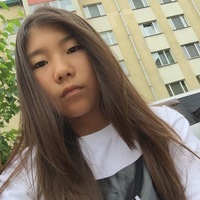
Complete the text with the words in the box. elective exams primary extensive kindergarten
subjects alphabet specialized private upper Pre-school years In Ukraine most parents send their children to or nursery school at the age of three. Between the ages of three and six children develop social skills and learn to get on and play with each other. They also take their first steps in literacy and numeracy and are taught to count and to read the letters of the Ukrainian 2_have lessons in art and craft and sometimes English.Compulsory education . They Compulsory education in Ukraine begins at the age of six when children start 3_ _ school (grades 1-4). Then at the age of ten they go to basic or lower secondary school (grades 5-9) where they study until they are fifteen. Education is compulsory up to the end of grade 9. After this students can either continue their studies in 4_ secondary school (grades 10-11) or leave school and go to college or a vocational school. Core curriculum Ukrainian students have a wide choice of s . They study literature, mathematics, history, science, information technology,art, music and foreign languages. Students start to learn a foreign language - usually English, German or French - when they are in grade 1. Students who go to 6_ language schools also learn a foreign language from the first year of school but more extensively. Then they begin to learn a second foreign language in grade 5. Finishing school Students in senior grades usually take7_ L courses in addition to their compulsory subjects. These are intended to prepare them for their future studies and to help them decide which profession to choose. After finishing grade 11 of upper secondary school, students can go into higher education. All applicants must take s_ called the National Independent Testing. The exams test students' knowledge of core school subjects at the end of their school education 4 Read the text again. Answer the questions. 1 What skills do children develop in kindergarten? 2 What can students do after grade 9? 3 When do Ukrainian students start to learn a foreign language? 4 Who can take elective courses? 5 How many schools are there in Ukraine? Write questions to ask your parents about their schooldays.Use phrases from the box and your own ideas. Then write a short text based on their answers. how old/start school favourite subjects be good at study hard take exams do sport go on school trips have many friends/a strict teacher be late wear a uniform enjoy school Types of schools There are more than 20,000 schools in Ukraine and 95% of them are state schools. The other 5% of Ukrainian schools are 9_schools where parents pay for their children's education. There are now more and more different types of schools such as gymnasiums, lyceums, language and specialized schools which offer 10_ learning in particular subjects.for example, foreign languages, information technology, maths.law or art. In these schools students have access to interesting new subjects in addition to more traditional ones Extra-curricular activities School isn't just about hard work. It's also about making friends and having fun. Some of the best learning experiences come from going on school trips and taking part in extra-curricular activities. There are clubs and activities covering a range of interests from literature to environmental issues and science.Students can choose to do sport, join an art or drama club.have dance lessons or learn handicrafts such as embroidery,sewing or knitting. There is indeed something for everybody! 0
0
 0
0
Ответы на вопрос
 Внимание! Ответы на вопросы дают живые люди. Они могут содержать ошибочную информацию, заблуждения, а также ответы могут быть сгенерированы нейросетями. Будьте внимательны. Если вы уверены, что ответ неверный, нажмите кнопку "Пожаловаться" под ответом.
Внимание! Ответы на вопросы дают живые люди. Они могут содержать ошибочную информацию, заблуждения, а также ответы могут быть сгенерированы нейросетями. Будьте внимательны. Если вы уверены, что ответ неверный, нажмите кнопку "Пожаловаться" под ответом.

Answer:
Pre-school years In Ukraine, most parents send their children to kindergarten or nursery school at the age of three. Between the ages of three and six, children develop social skills and learn to get on and play with each other. They also take their first steps in literacy and numeracy and are taught to count and to read the letters of the Ukrainian alphabet. They have lessons in art and craft and sometimes English.Compulsory education Compulsory education in Ukraine begins at the age of six when children start primary school (grades 1-4). Then at the age of ten, they go to basic or lower secondary school (grades 5-9) where they study until they are fifteen. Education is compulsory up to the end of grade 9. After this, students can either continue their studies in upper secondary school (grades 10-11) or leave school and go to college or a vocational school.Core curriculum Ukrainian students have a wide choice of subjects. They study literature, mathematics, history, science, information technology, art, music, and foreign languages. Students start to learn a foreign language - usually English, German, or French - when they are in grade 1. Students who go to private language schools also learn a foreign language from the first year of school but more extensively. Then they begin to learn a second foreign language in grade 5.Finishing school Students in senior grades usually take elective exams in addition to their compulsory subjects. These are intended to prepare them for their future studies and to help them decide which profession to choose. After finishing grade 11 of upper secondary school, students can go into higher education. All applicants must take exams called the National Independent Testing. The exams test students' knowledge of core school subjects at the end of their school education.
1. In Ukraine, children in kindergarten develop social skills, learn to interact and play with each other, take initial steps in literacy and numeracy, and are introduced to the Ukrainian alphabet. Additionally, they may have lessons in art, craft, and sometimes English.
2. After completing grade 9 in Ukraine, students have the option to either continue their studies in upper secondary school (grades 10-11) or choose to leave school and pursue education in college or a vocational school.
3. Ukrainian students start to learn a foreign language, usually English, German, or French, when they are in grade 1. Students attending private language schools may start learning a foreign language from the first year of school, but more extensively. Additionally, they begin to learn a second foreign language in grade 5.
4. In Ukraine, students in senior grades can take elective courses in addition to their compulsory subjects. These elective courses are intended to prepare them for future studies and assist in deciding on a profession.
5. There are more than 20,000 schools in Ukraine, with 95% being state schools. The remaining 5% are private schools where parents pay for their children's education.
Questions:
1. How old were you when you started school?
2. What were your favorite subjects back then?
3. Were you good at certain subjects, or did you find any challenging?
4. Did you have to study hard, especially during exams?
5. Did you participate in sports or any extracurricular activities?
6. Did you go on school trips, and if so, do you have any memorable experiences?
7. Did you have many friends or a strict teacher?
8. Were you ever late to school?
9. Did you have to wear a uniform, and how did you feel about it?
10. Did you genuinely enjoy your time in school?
Text based on their answers:
As I sat down with my parents to inquire about their school days, a flood of nostalgic memories and anecdotes emerged. They shared tales of starting school at a young age, with my mom expressing fondness for literature and my dad finding joy in mathematics. They both recalled subjects they excelled at and those that required extra effort and dedication.
Studying hard for exams was a common theme, along with engaging in sports and participating in various extracurricular activities. School trips brought back vivid memories, with my parents reminiscing about the adventures they had with their classmates.
The dynamics of friendships and teacher-student relationships were also explored. While my dad mentioned having a strict teacher, my mom fondly remembered the camaraderie with her many friends. Punctuality, or the occasional lateness, was another shared experience.
Uniforms were part of their school life, and surprisingly, they both spoke about it with a mix of nostalgia and acceptance. Ultimately, the conversation revealed that, despite the challenges and discipline, they genuinely enjoyed their time in school, laying the foundation for a lifetime of learning and cherished memories.
 0
0
 0
0

a place for learning core subjects, but it also offers a variety of extra-curricular activities. Students have the opportunity to participate in sports, go on school trips, and make many friends. Some schools even have strict teachers, where students are expected to study hard and take exams regularly. Wearing uniforms and being punctual are also common in certain schools.
1. What skills do children develop in kindergarten? 2. What can students do after grade 9? 3. When do Ukrainian students start to learn a foreign language? 4. Who can take elective courses? 5. How many schools are there in Ukraine?
Questions to ask parents about their school days: 1. How old were you when you started school? 2. What were your favorite subjects? 3. Were you good at studying or did you find it hard? 4. Did you do any sports or go on school trips? 5. Did you have many friends or did you have a strict teacher? 6. Were you ever late to school? 7. Did you have to wear a uniform? 8. Did you enjoy school?
There are more than 20,000 schools in Ukraine, with 95% of them being state schools. The remaining 5% are private schools where parents pay for their children's education. In addition to traditional state schools, there are also gymnasiums, lyceums, language schools, and specialized schools that focus on specific subjects such as foreign languages, information technology, maths, law, or art. These specialized schools offer extensive learning opportunities to students.
In these schools, students have access to interesting new subjects and can participate in elective courses in addition to the core curriculum. After finishing grade 9, students have the option to either continue their studies in upper secondary school (grades 10-11) or choose to leave school and pursue higher education in college or a vocational school. To enter higher education, all applicants must take the national independent testing, which examines their knowledge of core school subjects.
 0
0
 0
0
Похожие вопросы
Топ вопросов за вчера в категории Английский язык
Последние заданные вопросы в категории Английский язык
-
Математика
-
Литература
-
Алгебра
-
Русский язык
-
Геометрия
-
Английский язык
-
Химия
-
Физика
-
Биология
-
Другие предметы
-
История
-
Обществознание
-
Окружающий мир
-
География
-
Українська мова
-
Информатика
-
Українська література
-
Қазақ тiлi
-
Экономика
-
Музыка
-
Право
-
Беларуская мова
-
Французский язык
-
Немецкий язык
-
МХК
-
ОБЖ
-
Психология
-
Физкультура и спорт
-
Астрономия
-
Кыргыз тили
-
Оʻzbek tili




























